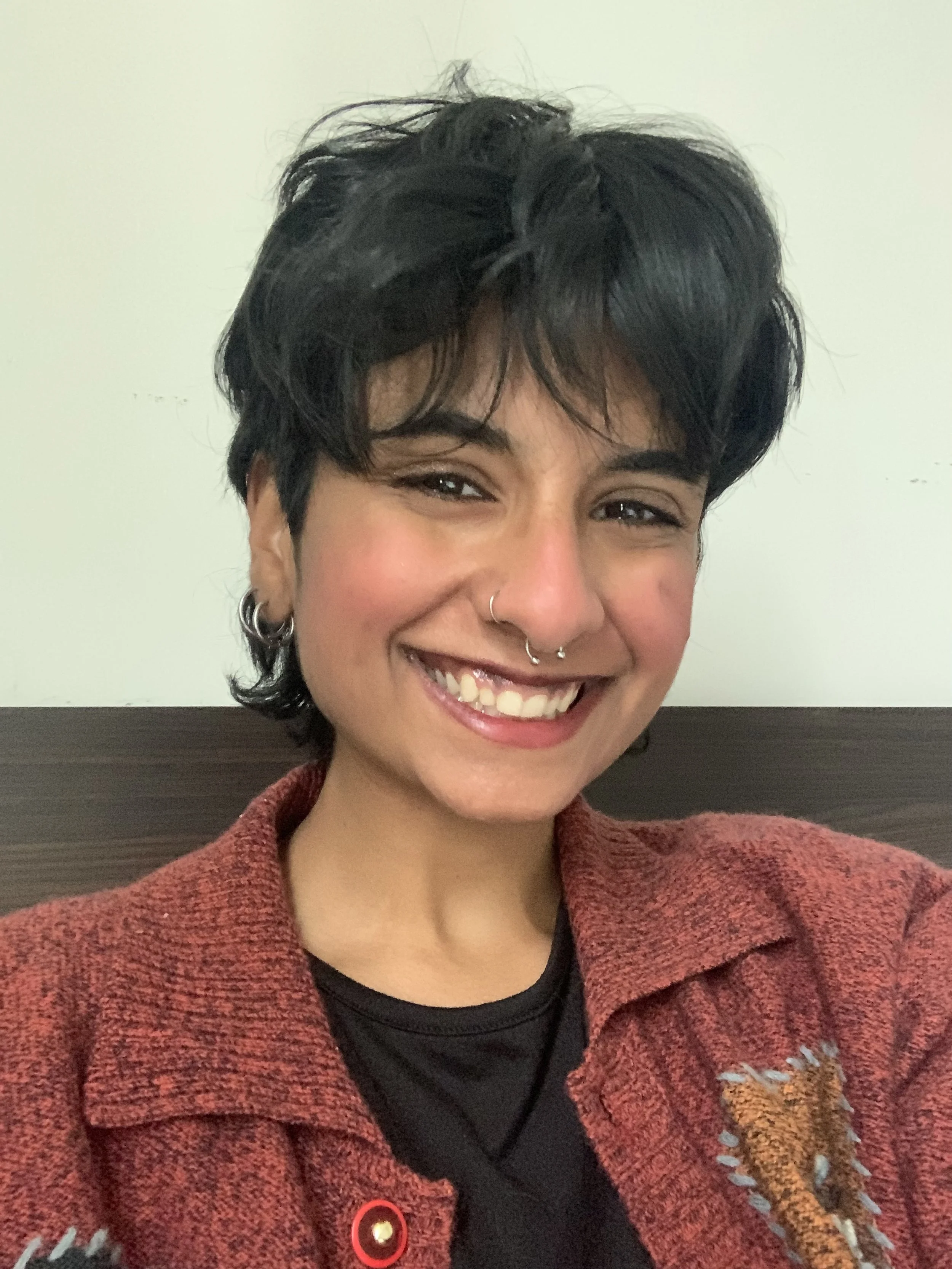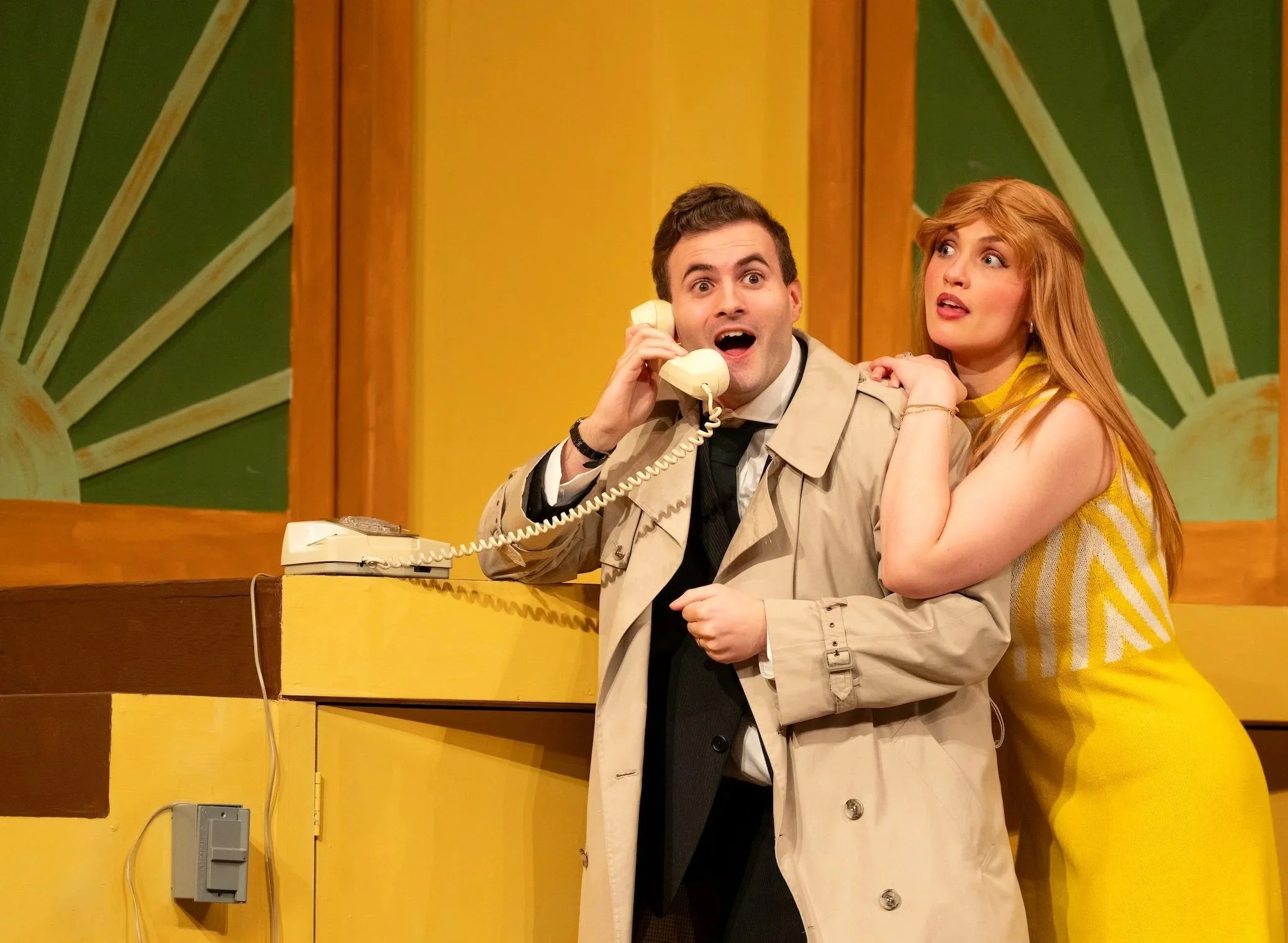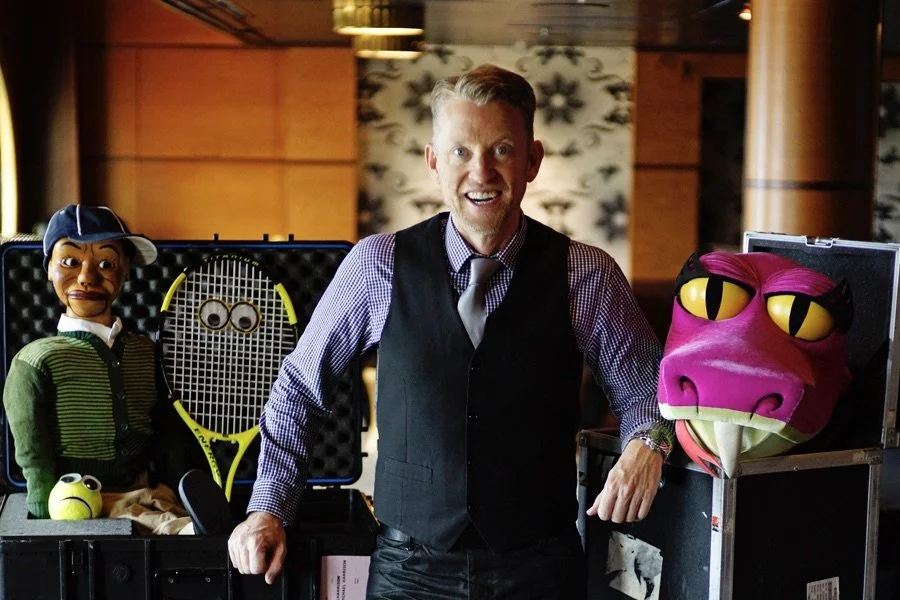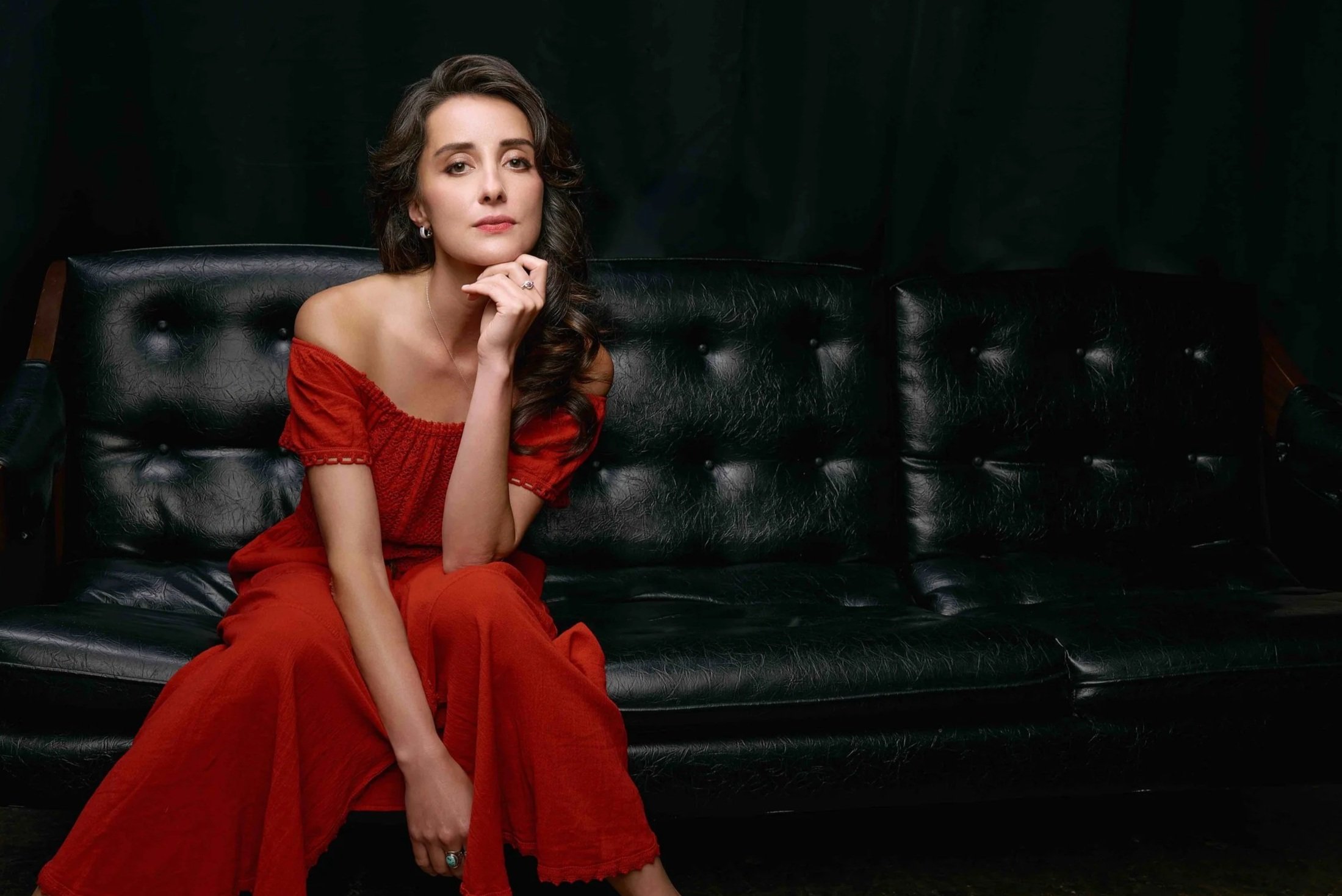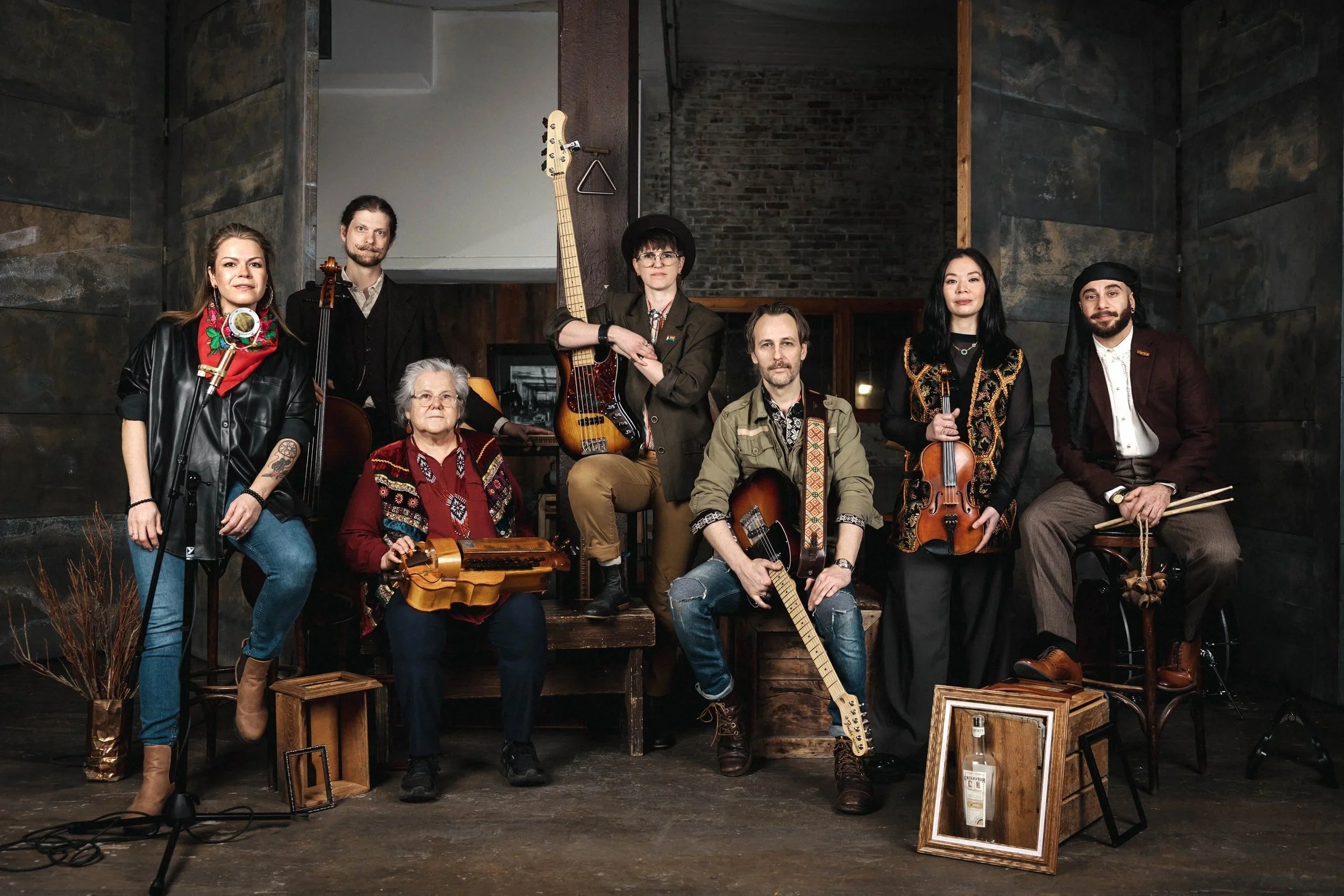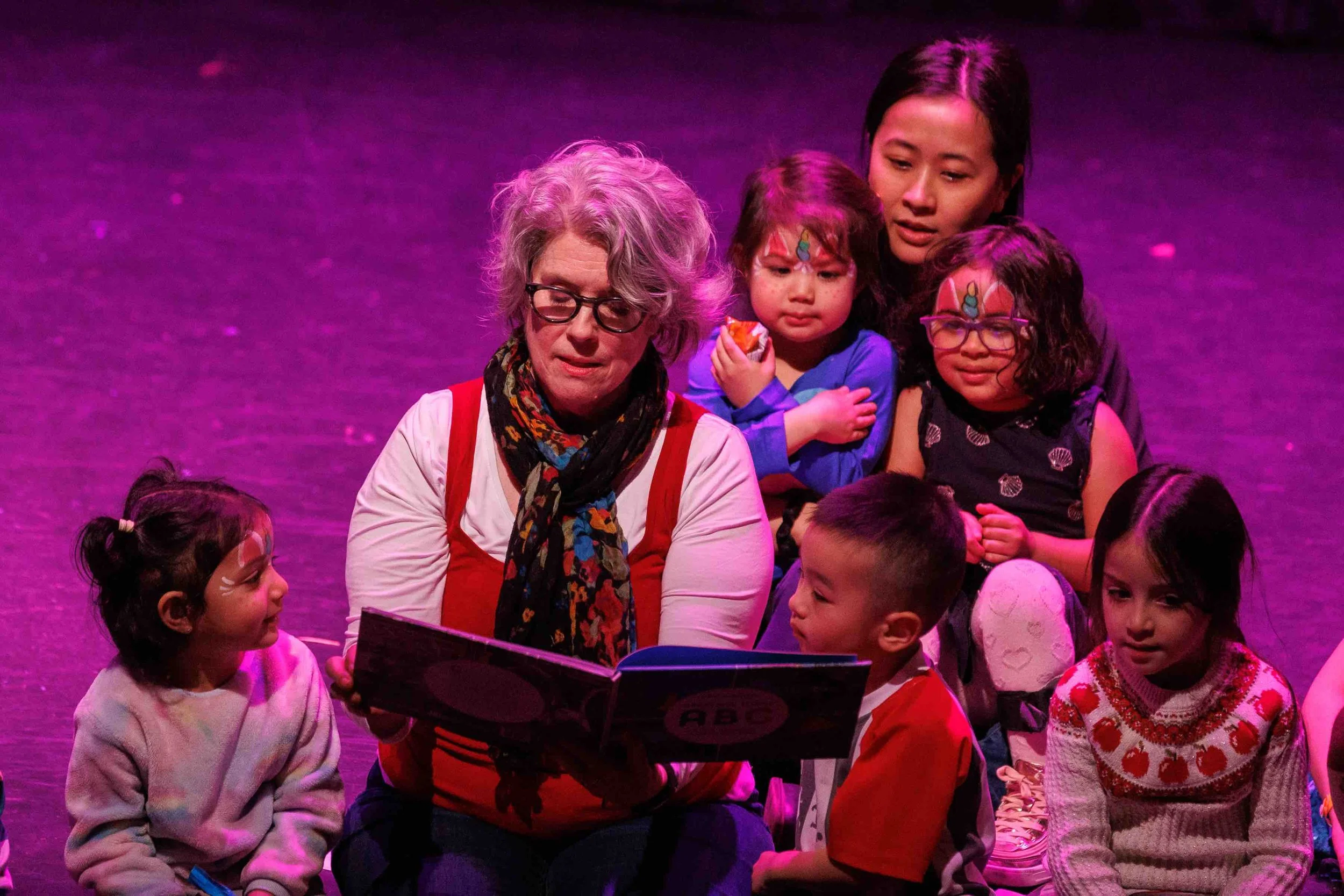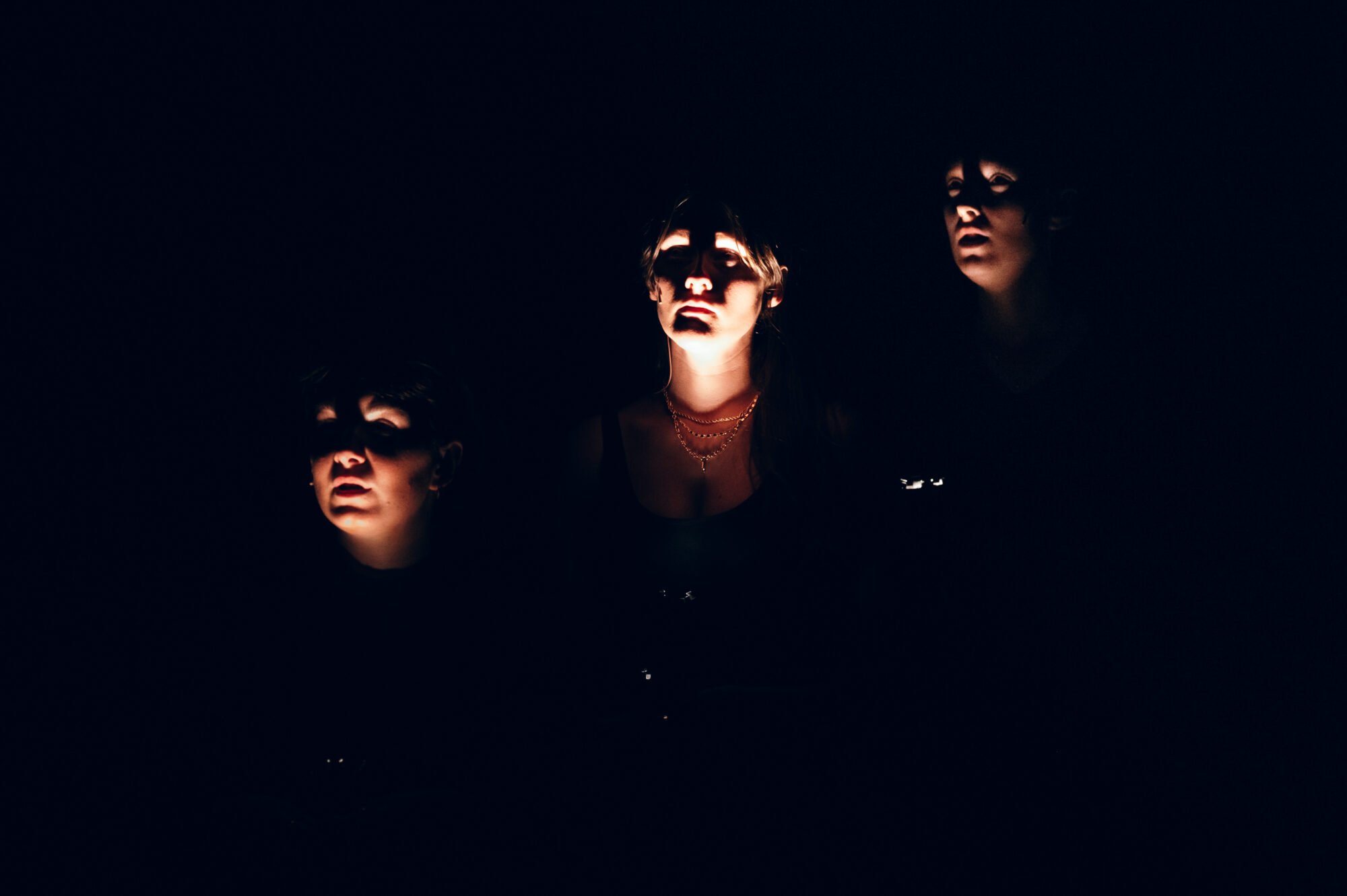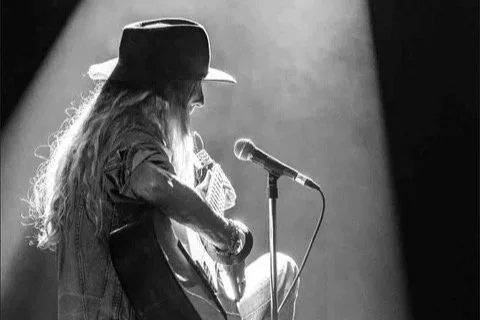Stir Q&A: Dil Ka playwright Lee Nisar talks biryani, being queer and South Asian, and food as the great unifier
Her new work, set in a traditional Pakistani family’s kitchen, debuts as part of Ruby Slippers’ Advance Theatre Festival at the Shadbolt Centre for the Arts
Lee Nisar’s Dil Ka explores the idea that you can embrace tradition as well as your own identity.
Ruby Slippers Theatre, in association with the Shadbolt Centre for the Arts and Playwrights Guild of Canada, presents a workshop production of Dil Ka at the Shadbolt on February 16 and 17
IN URDU, the term “Dil Ka” means “of the Heart”—and it’s clear that emerging Canadian playwright Lee Nisar has written her new script of the same name from the heart, as well.
The story follows potential bride-to-be, Zahra, a 26-year old Pakistani woman who is attempting to make the biryani that’s traditionally taken to a potential suitor’s house. She is desperate to make a good impression and please her family, who come in and out of the kitchen with advice. Zahra unleashes a confessional while she cooks, coming to terms with what—and who—she really wants, and how it drastically differs from the expectations she’s been fed since birth.
Local audiences will get a first look at the play in a workshop production that’s part of the Advance Theatre Festival—Ruby Slippers’ showcase for historically marginalized voices, specifically BIPOC female and gender nonconforming playwrights and directors. Patricia Trinh directs.
Here, Stir talks to the Toronto-based, 22-year-old Nisar about her love of family recipes, the ability to embrace both one’s Muslim and queer side, and her background in documentary film.
How did food become a way into looking at identity and tradition in your play?
I think food is such an amazing middle ground for us all—we all need it to survive, and have to eat it every day, but it can often become such a point of tension, especially with certain cultural foods and the ways they're perceived in the West (we all have heard the classic tale of bringing a traditional lunch to class in grade school, only for all the other kids to point and laugh at our 'smelly food').
For Dil Ka, I wanted to go beyond this, and use food as this unifying object, primarily because that's exactly what it's been for me. I remember almost always having dinner at the table with my family, when I was a kid, even if our table was a cloth on the ground, or a bus heading somewhere late. It was important for my mother for that to be the time we all spent together, and she would often spend the whole day preparing for the evening meal. A lot of things are intergenerational in South Asian households, as we pass down our cultures, language, food, trauma, and traditions—which often comes above all else, and this was extremely frustrating for me, because I noticed that often with these traditions being passed down, there was resistance to change. It's difficult because our idea of individuality is so pertinent in the West, but is seen as a detriment in my culture.
However, I think the passing down of recipes (often just presented verbally or in hastily-written Urdu) was something I adored. To me, each dish contains so much history pertaining to that specific family. Every brown person likely has had biryani, sure, but every family makes it differently. One family may add nuts, one may be vegetarian. Someone might use food colouring, whilst someone else might consider that heresy. In Dil Ka, I wanted the kitchen to be both a refuge and a prison. Zahra and her family move in and out of the space, and the biryani is something that is altered with each visit. Baba sneaking a taste, Mama changing up the spices to fix Zahra's 'errors'. I think, at the end of the day, they all played a role in making it, even if it was often done separately. The kitchen, as Zahra mentions, usually is where the women come in, socialize, make their food, and present it to guests at functions. It becomes this unifying factor for them, and a safe refuge from other traditionally cultural spaces, where there are a lot of social expectations placed on women. I think there's something so interesting to me about the domesticity of the act, but also the power. The kitchen has truly been an intimate, sacred space for a lot of brown women before me, and this play was—in a lot of ways—me trying to approach that, and see how that secrecy and separation can also allow for truth and change.
What was the seed for the story in Dil Ka?
For me, the seed of Dil Ka came from not only my own experience, but the experience of my queer South Asian friends, who are often faced with this near-impossible question of family vs. truth. For me, at times, being South Asian felt like a ticking time bomb. I would only have a certain number of years before I'd reach the age where people would be harassing me at weddings and family events, wanting to figure out why I wasn't engaged yet, and what was missing. Realizing I was gay was like a breath of fresh air - but also the most terrifying moment in my life. I finally knew what was 'missing', and I was ecstatic to have a name to put to myself, to be able to carry that identity with pride.
But for me, carrying it with pride would mean putting something else on my family, who came to Canada when I was a baby. In South Asian culture, appearances and reputation means a lot, and the pride of the family is considered to be synonymous with the pride of the individual. I knew that if I were to be openly queer, and someone in my family were to find out, the shame would not be on me—it would be on my parents, who would be seen as failures in the community for not being able to raise me 'properly’. It took a long time for me to let go of that tension, and I think that being so sure of myself and who I am has been the only way I've been able to deal with the pressures of it.
Although Dil Ka is based on the experiences of me and so many other queer South Asian people, it is a work of fiction. For me, Zahra was not only a catalyst for me to explore that grey area, where you know something is 'off', but you're still figuring out what it is and how to say it, but a way to also have a character who is a steadfast Muslim, and is also queer. Who loves her god, who loves her family, but who is also trying to figure out how to love in other ways, and is realizing it can all be possible. You don't have to pick and choose, and in fact, your mere existence is proof of that.
Advance Theatre Festival is about bringing diverse stories into the spotlight. Coming up as a young theatre artist, who or what did you look to for stories that reflected your experience?
Oh, isn’t that the question, haha! I think I was very lucky to be able to be a part of a great theatre community in my undergrad, which really helped me learn to collaborate and love the form. In terms of inspiration for stories that reflected my experience, I think a big inspiration for me recently has been Bilal Baig. Their play, Acha Bacha, was so fantastic, and I think their tongue-in-cheek way of looking at their identity and intersecting communities was something that really rung true for me.
I also adored Fleabag (who didn’t?) and its monologues-style and fourth-wall breaking was—still is—something I found so amazing. Season 2 broke me in every way, but I think it’s such a perfectly crafted story, with an amazing main character to guide the whole piece.
I find a lot of inspiration in poetry and books, as well. For this play, I loved ‘How to Cure a Ghost’ by Fariha Roisin, ‘On Earth, We’re Briefly Gorgeous’ by Ocean Vuong, and ‘Crush’ by Richard Siken. A lot of my inspiration comes from friends, every day conversations, little interactions. I think that’s why a lot of my work is so dialogue heavy—I’m just so nosy, haha.
You’re pursuing an MFA in documentary media—how does that inform and interweave with your theatre work?
For me, coming from a theatrical background (having done my undergraduate degree in theatre), I found a lot of differences within documentary (primarily due to my focus being in film), but also a lot of similarities.
I'm very intrigued by the notion of the documentary interview, and how some folks stifle themselves in front of a camera, while others truly shine with that lens on them. It sometimes feels as if having an audience can be freeing for people, as it reminds them that people are listening. I think there's something so amazing about that, and I'm constantly honoured and humbled by the people I work with, and their openness to telling their own stories.
I knew that, for this play, I wanted the audience to be involved as spectators and listeners, and I think that this idea of witnessing and listening is something that is so talked-about in documentary, but in theatre, it takes on an entirely different form. You, as the actor, can physically see the people listening in front of you. In film, it's often suggested or unknown, but in theatre, you can make direct eye contact as you speak. You can smell each other, feel each other in the room, and see different listeners every day. The divide of the proscenium, for me, is something I love playing with, as I think it's just so fun! Especially when you consider the traditional etiquette expected in the theatre. Rather, I love the idea of the audience being involved. If I had to come up with a balls-to-the-wall, dream production of this with infinite money and resources, I'd have a fully-functional kitchen installed on stage, and have Zahra hand out biryani to leaving guests, haha!
Have you ever struggled to make a biryani?
I still struggle to make biryani, and I think I always will. I love my mother's adherence to using all the authentic ingredients, to purchasing a whole bag of a particular spice to use only for that dish, but unfortunately, my cooking brain is always looking for efficiency and quick-fixes, which biryani seems antithetical to a lot of the time! The first time I attempted to make it, I sent a picture to my dad while on the phone with him, and as he showed my mom, I could clearly hear them both trying to hide their laughter. My dad muttering, 'That looks wrong,' as my mom told him to hush, and that I did a 'great job'. Later that night, she sent me her recipe again. So now I stick to ... simpler rice dishes. Although I am excited for the day where my finances allow me to truly embrace the complexities of the dish, and make it 'right'.


